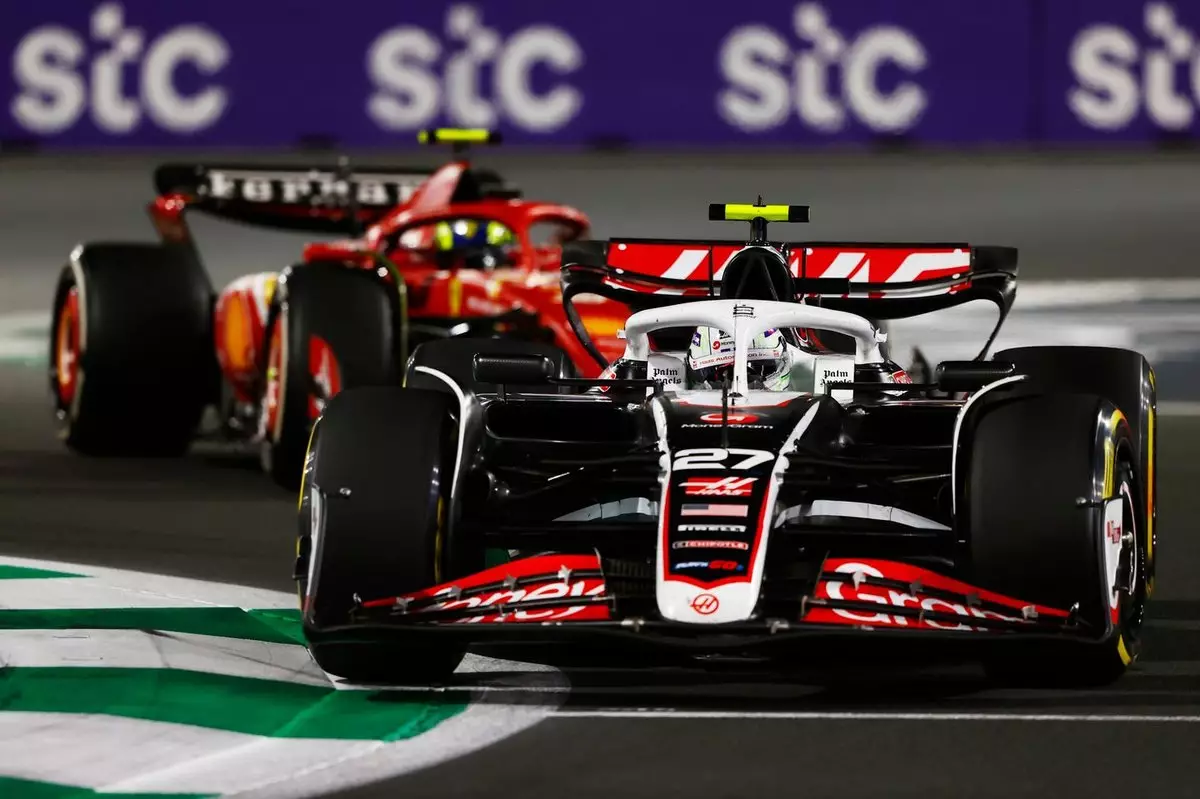In the recent Saudi Arabian Grand Prix, Nico Hulkenberg made a strategic decision to stay out on the track under an early safety car situation. While this move backfired for other drivers like Lando Norris and Lewis Hamilton, it proved to be beneficial for Hulkenberg. The decision to not pit under the safety car was a risky one, as a necessary second safety car never materialized. However, it was a necessary gamble that paid off in the end for Hulkenberg.
Hulkenberg’s teammate at Haas, Kevin Magnussen, played a crucial role in securing a points finish for Hulkenberg. Magnussen was able to pass Yuki Tsunoda from Red Bull, creating a buffer between Hulkenberg and the chasing pack. This move allowed Hulkenberg to pit for fresh tires without losing his position in the top 10. Magnussen then controlled his pace to let Hulkenberg build a comfortable gap ahead of the pit stop. The plan executed by Magnussen worked perfectly, with Hulkenberg rejoining the race ahead of Magnussen and his competitors.
After securing a point for finishing in 10th place, Hulkenberg expressed his gratitude towards Magnussen for being a team player. He acknowledged the effort made by Magnussen to help him secure the point and vowed to return the favor in the future. Hulkenberg praised Magnussen for his selfless act and acknowledged the importance of teamwork in Formula 1 racing. This display of camaraderie between teammates showcases the collaborative nature of the sport and the impact it can have on individual performances.
During the race, Hulkenberg was unaware of Magnussen’s support and was surprised by the gap he was able to create between himself and the competitors behind him. The communication within the team was crucial in executing the strategy effectively. Hulkenberg’s focus on driving flat out and pushing himself physically paid off in securing the valuable point for the team. His ability to adapt to the circumstances and capitalize on the support from his teammate reflects his skill as a driver in challenging situations.
Throughout the race, Hulkenberg showed respect for his competitors, including the impressive debutant Oliver Bearman from Ferrari. Hulkenberg acknowledged Bearman’s performance and aggressive driving style, highlighting the competitive nature of Formula 1 racing. Despite briefly locking horns with Bearman on the track, Hulkenberg displayed sportsmanship and praised the young driver for his skills and determination. The interaction between experienced drivers like Hulkenberg and upcoming talents like Bearman adds excitement and intensity to the racing experience.
The Saudi Arabian Grand Prix showcased the importance of teamwork, communication, and sportsmanship in Formula 1 racing. Nico Hulkenberg’s strategic decision, supported by Kevin Magnussen’s assistance, exemplified the collaborative effort required to achieve success on the track. The mutual respect between teammates and competitors enhances the competitive spirit of the sport and contributes to the thrill of Formula 1 racing. As drivers navigate the challenges and opportunities presented in each race, the art of teamwork remains a crucial factor in achieving victory and securing valuable points.


Leave a Reply